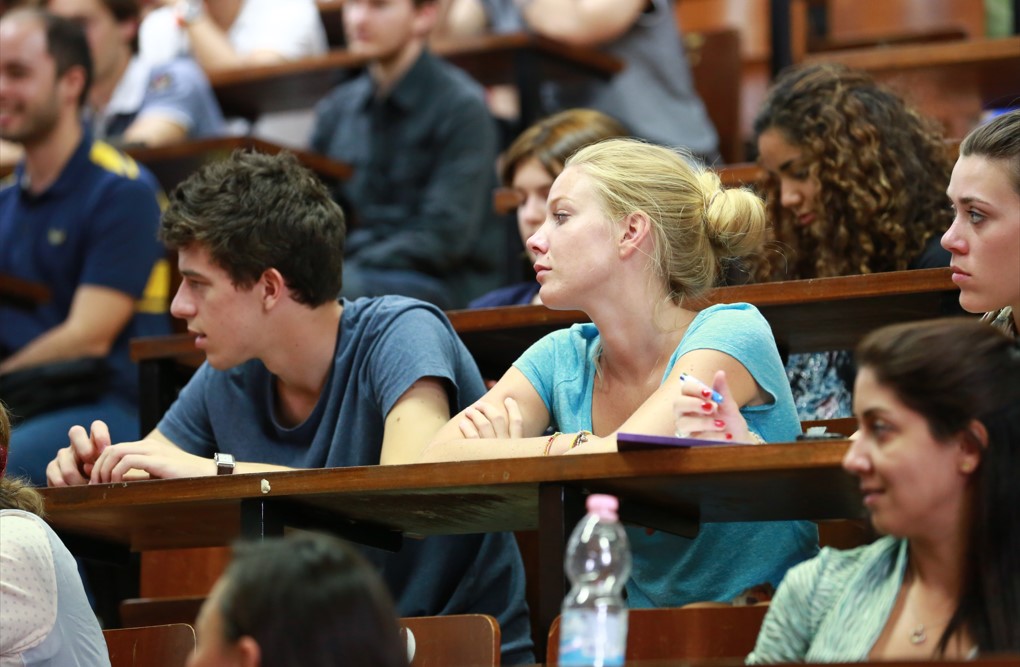Over the course of one year, you will receive extensive on-site training in mathematics, encompassing both pure mathematics and applied mathematics as well as take courses from UniCA's Mod4NeuroCog. Our main objective is to prepare you to integrate into the world of theoretical or applied mathematical research.
Through MFA, you will cultivate skills in various areas of mathematics to tackle complex phenomena found in fields such as finance, biology, and physics and specialize in one of three specific mathematical fields: Algebra and Geometry, Analysis-Scientific Computation or Probability-Statistics. Through this specialization, you will develop a profound understanding of your chosen area and gain in-depth knowledge and expertise.
Through MFA, you will cultivate skills in various areas of mathematics to tackle complex phenomena found in fields such as finance, biology, and physics and specialize in one of three specific mathematical fields: Algebra and Geometry, Analysis-Scientific Computation or Probability-Statistics. Through this specialization, you will develop a profound understanding of your chosen area and gain in-depth knowledge and expertise.

By focusing on a specific mathematical field, you will be able to explore advanced topics and applications related to your research interests. With approval of your coordinator, you may also create a customized program comprising one specialization along with courses in for instance, PDEs/or stochastic processes. During your studies, you will have the option to do a 3-month research internship or pursue a thesis.
- Probability and Statistics Block
-
- Stochastic Calculus
- Numerical Methods in Probability
- Advanced Stochastics
- Statistical Learning with, on Graphs
- Geometric Statistics
- Introductory Courses
-
Algebra-Geometry Block Analysis Block Probability & Statistics Block - Geometry/Dynamics (Complex Geometry)
- Algebraic Topology
- Complex Analysis
- Functional Analysis
- Mathematical Tools for PDE
- Numerical
methods for PDE
- Probabilistic and computational methods
- Stochastic calculus and applications
- Advanced Stochastic and Applications
- Advanced Courses
-
Algebra-Geometry Block Analysis Block Probability & Statistics Block - Dynamical Systems
- Advanced Geometry
- Advanced PDE
- Advanced methods for numerical Analysis
- Fundamentals of machine learning and computational
- Statistical Learning
- Geometric statistics
Program Details
- Dates
-
2025-26 Application Period May 2025 - July 15th 2025 2025-26 Course Dates September 8th, 2025 - July 17th 2026 Internship Period March - June 2026 (TBC) - Semester 1
-
Mandatory Courses
Subject Value ECTS Probability Option
Subject Value Monte Carlo Methods and Markov Chains 6 ECTS Stochastic Processes 3 ECTS Optional: Introduction to PDEs 3 ECTS Optional: Mathematical Presentations 1 3 ECTS Scientific Computing Option
Subject Value Partial Differential Equations and Finite Differences 6 ECTS Introduction to PDEs 3 ECTS Optional: Stochastic Processes 3 ECTS Optional: Mathematical Presentations 1 3 ECTS - Semester 2
-
Mandatory Courses
Subject Value Commutative Algebra 6 ECTS Differential Calculus and Differential Geometry 6 ECTS Fourier Analysis and Distributions 6 ECTS Professional English 2 ECTS Thesis 4 ECTS Probability Option
Subject Value Mathematical Statistics 1 3 ECTS Optional: Mathematical Statistics 2 3 ECTS Optional: Mathematical Presentations 2 3 ECTS
Scientific Computing Option
Course Value Optimization and Finite Elements
3 ECTS Optional: Optimization and Finite Elements 2
3 ECTS Optional: Mathematical Presentations 2
3 ECTS Internship
Location Duration Dates Value In a public or private research laboratory 15 Weeks
March 1st 2024 - June 15th 2024 30 ECTS - Duration
-
The program duration will vary depending on the chosen specialization.
Lectures: 100 hours
Tutorials/Practical Work: 50-80 hours
Internship or Research Thesis: Flexible
MFA students may customize their curriculum by selecting a minor that includes optional courses of 24 hours per semester. - Evaluation
-
- 5 mandatory courses must be chosen from the blocks above including three advanced and two introductory
- Continuous assessment for the 5 selected teaching units.
- Internship report composition and presentation to the internship committee
- Course Schedule 2024/2025
















